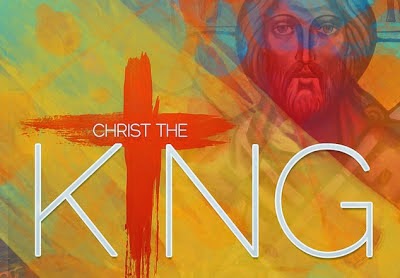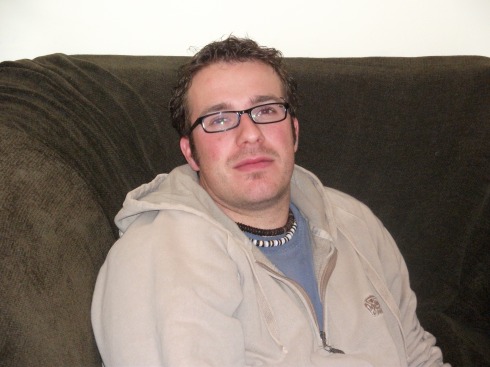St James Poole
29th April 2018
Easter 5
Acts 8:26-40
John 15:1-8
The vine that grows wild amongst the cracks and the conspiracy of Acts 8:37
Let’s get straight into our reading from Acts, the story of Philip and the
Ethiopian Eunuch and again let’s get straight to the uncomfortable stuff, the
taboo stuff, the kind of things that so many think the bible is silent on, those
things that we shouldn’t talk about in church. Hold onto your pews because
we need to talk a bit about Eunuch’s and particularly this black man who had
made his way from Africa to the the Middle East.
The Ethiopian Eunuch was a gentile (non-jew) God-fearer. He couldn’t have
been a convert to Judaism, because as a Eunuch he would have been
disqualified, since many eunuchs were partially dismembered, as well as
castrated, meaning that he couldn’t be circumcised. I told you most people
don’t know this kind of graphic stuff is in the book!
This black man had been to Jerusalem to worship Israel’s God, but he
wouldn’t have been allowed to celebrate the festival. Physically unfit, ritually
excluded; all that way and no entrance ticket when he arrived. He could pray
from a distance, but that was it. And yet Israels’ God, YHWH captivated him
so much that we find him reading from Isaiah 53. What was it that he found
there that caught his eye, causing him to ask Philip about this passage? Was
there something that spoke to him about his own situation when he read
these words ‘In his humiliation, justice was denied him,’ did something ring
true, as he reflected possibly upon being refused entry to the temple, unable
to take part fully in worship.
The early chapters of Luke’s Acts of the Apostles have seen that first church
drawing together, working stuff out after the events of that first easter, the
mixed emotions and that thought, what to we do now! We then have this
story and the repeated phrase to Philip to go, and where is he sent…..? We
find him announcing to this black eunuch that in Jesus’ Israel, God has
revealed his universal welcome, suddenly the Ethiopian’s physical and social
exclusion is overturned as he comes through the water of baptism. The Law
had excluded men with crushed, mutilated, or missing genitalia from full
participation in Israel’s worship (Leviticus 21:20; Deuteronomy 23:1). Isaiah,
however, envisioned redemption for the sexually ambiguous. In this new
resurrection beginning, we find the restoration of God’s people, eunuchs
brought within God’s house and given a name greater than sons and
daughters (Isaiah 56:3-8). God’s embrace of the eunuch, and a foreign
eunuch at that, shows that the promised age of restoration has begun to
dawn (and maybe speaks deeply into the Windrush scandal).
So what about the vine and the branches in our Gospel reading. Philip and
the Ethiopian is a story about someone searching and someone being sent.
Searching and Sending and I think that both of those things apply to all of
us. We are sent people, Go Philip is told, not given all the details about why
but just to Go. But we are also to be searching people, searching to
understand more about the mystery who we call God, but also searching to
see where God is already at work.
I don’t know about vines but I do remember a knock at the door one day
when I must have about 10, my mum answering it and coming in looking a
bit embarrassed. The elderly lady who lived behind us had come to complain
about our ivy growing over the back fence and blocking the passageway up
the side of her house. So not quite vines by I do have experience of being
sent out over the back fence to cut back the ivy that was growing wild into
others peoples gardens, and I remember whilst precariously balanced on a
ladder being slightly impressed by the way the ivy forced it way up through
the fence and you could even see it coming up through the cracks in the
pavement.
If Jesus is the vine we are left to consider how we are to remain or abide in
him. There is a sense in which we must go wherever the vine is going,
through the cracks in ground, into other people gardens, over the wall into
whole new places. The vine grows wild in the cracks! How is God speaking
to us from the sides, the margins, the places we don’t expect, through the
people who make us uncomfortable or angry. Perhaps God is happy being a
bad gardener, letting the vine grow wild into places where it shouldn’t. Is
Jesus the vine breaking into places through us, sometimes despite of us,
and also in us. This is the resurrection hope of Easter that life is breaking into
the darkest places.
Anselm defined God as a “being than which no greater can be conceived”,
we pursue that which can’t fully be understood or described. The Ethiopian
surely didn’t know everything, he was new to all of this, but was responding to
the whisper of God deep in his soul. And then we hit upon this beautiful line,
“well here is some water why shouldn’t I be baptised.” Not I’ll do that once I
know more, when I understand more, when I’ve got everything in order. Do
we ever really get to that place where we’ve got it all sussed? God turns up in
the messiness and the actual reality of our lives, behind the smiles, into the
family tensions, the financial worries, into the ……… you fill in the blank. The
Ethiopian shows us something very profound, that he understands grace, that
it wasn’t about him being able to do more and more and understand more
and more, but that God makes the first move towards him and the first move
towards us. It’s not about our effort and let those words be freeing to us today.
And then we hit upon the Acts 8:37 conspiracy. Who stole Acts 8:37?
Basically it was removed as it wasn’t found to be in the most ancient scrolls
and manuscripts, a later addition.
Following on from….. “why should I not be baptised”….
It said, “And Philip said, “If you believe with all your heart you may (be
baptised).” And he replied, “I believe that Jesus Christ is the Son of God.”
I find it fascinating that it was deemed necessary to insert this verse by
someone. Perhaps it spoke of an early form of baptism ritual, but in the
earliest manuscripts we don’t hear much if anything about what the Ethiopian
eunuch believes, we simply pick up on the clues that God has been pursuing
him over a period of time. Again, God has made the first move irrespective of
how we respond, or even what we believe.
To finish, Mrs P takes responsibility for the vegetation (with mixed results). I
bought her flowers last week here is one, and we also have this strange
white pot which sort of hangs around looking dead most of the time and I
have been telling her to chuck it out. But all of a sudden we have shoots
appearing (here it is), the different between these two things is that this is still
connected to the soil, to the roots, the source, it doesn’t look like much but it
is brimming with potential. The flower looks pretty now, but it’s on a
downward path, it’s cut off, it’s removed from the source. It’s outward
appearance will only last so long before it starts to wither.
What does it mean for us to be connected to the source of life? Sometimes
things get complicated and we get all legalistic like we’re not praying enough
or reading the bible enough and sure those things are vital in keeping us
connected to the source of life. But what else, where do you meet God, what
are the things that make you feel whole, where you find yourself able to be
who you were created to be, where do you feel that deep shalom, that peace
where you are sustained?
And finally, when it all gets too much, like I don’t know what I should do, and
the idea of God and source and vines and Eunuchs all gets too much. I find
myself back with prophet Micah
He has shown you, O mortal, what is good.
And what does the Lord require of you?
To act justly and to love mercy
and to walk humbly with your God.
I can start to get my head around that and how those things keep me
connected to God.
So may we discover that in doing good, in pursuing justice, love and walking
humbly, that we are connected to a vine who runs wild between the cracks.
Amen






Recent Comments